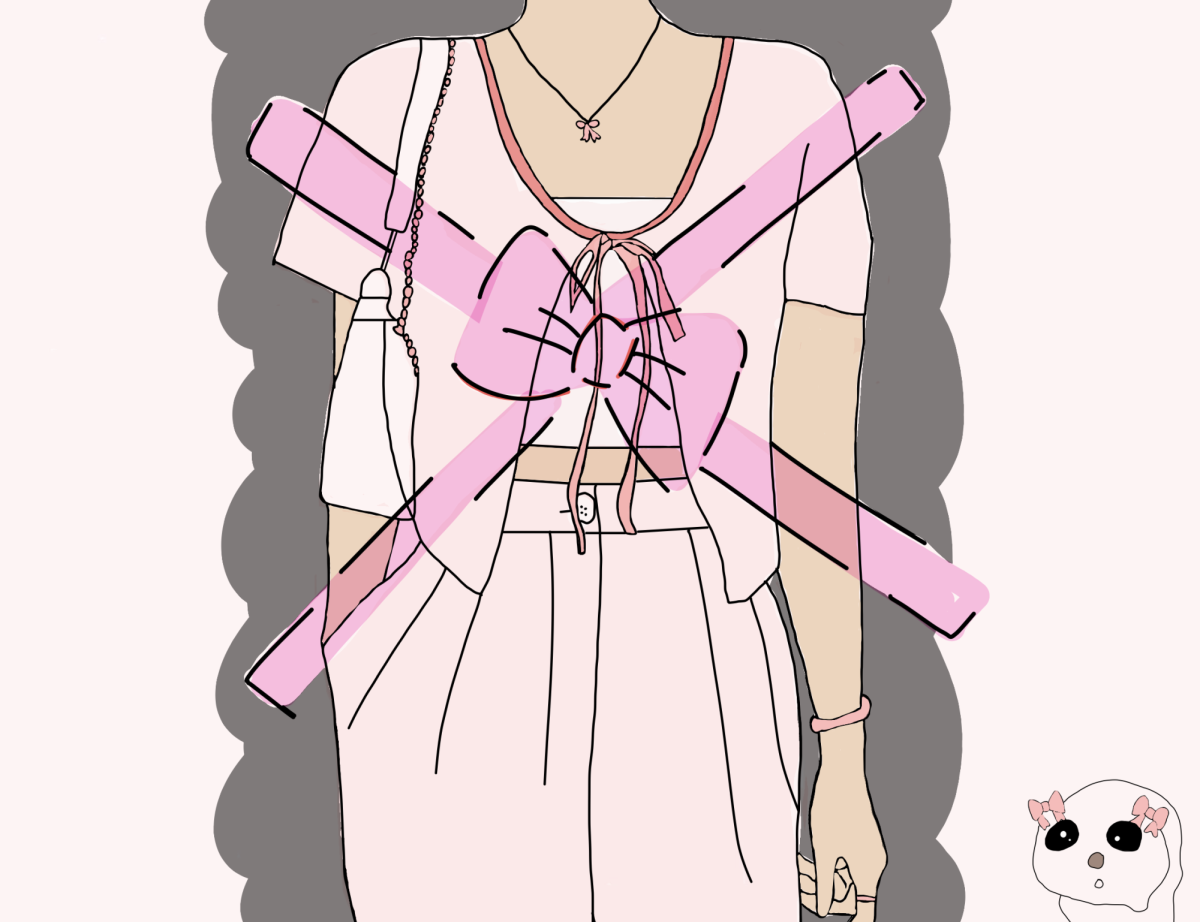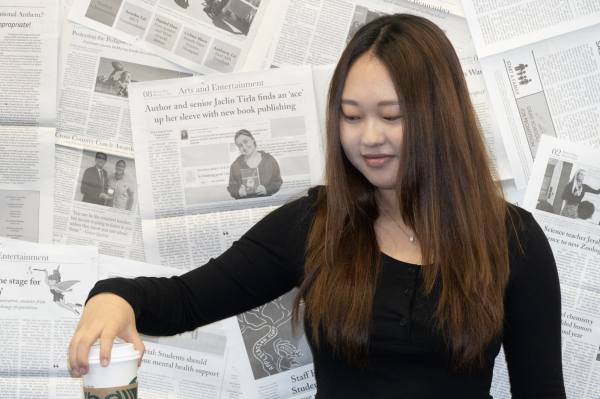From stringing baby pink ribbons through the hair to wearing cottage-core style lace with sweet florals, romanticizing the coquette persona has seen a resurgence in pop culture and social trends. The aesthetic, when coupled with contemporary issues of gender-based expectations, gives rise to an unhealthy cultural fixation on praising perfection and idealism in the absence of empowerment.
The term “coquette” first arose as a way to describe flirtatious women in the Victorian Era, according to the Social Research Foundation. Though the modern definition still echoes similar ideas of delicacy and femininity, it is more often associated with its use of bows, laces and frills. In today’s coquette trend on TikTok, participants use Lana Del Rey’s “Let The Light In” as a sound and upload videos where they randomly put bows on anything and everything — from ice cubes to bunnies, according to BuzzFeed. However, this form of hyper-feminism creates an illusion of fragility that undercuts women’s social progress, strength and independence.
To foster a more authentic understanding of girlhood that emphasizes diversity over conformity, it is important to reject the unattainable form of femininity promoted by the coquette trend by straying away from the “I’m just a girl” mindset.
Embracing an overly delicate image of women devalues their role in society and risks the reinforcement of outdated, gender-specific roles in which women hold no real power, according to the University of Sydney. This portrayal not only diminishes the perception of women as capable but also trivializes advancements made towards gender equality in everyday interactions.
Such aesthetics can unintentionally inflict self-perpetuating messages of women’s incapability and dependency, particularly through the use of phrases like “I’m just a girl,” according to Her Campus. The mindset promotes excuses and unaccountability that may translate to one’s behaviors and professional life, reinforcing long-held stereotypes that diminish womens’ perceived competence. Stepping away from submissive and decorative ideals of the coquette style is needed to recenter the growing shift towards respected women in society.
Further, promoting the coquette aesthetic can hinder progress towards gender equity goals by normalizing a narrow and restrictive perception of women’s appearance. This trend may inadvertently reinforce stereotypes and limit the diversity of expressions and identities that women can embrace. Thus, it is crucial to support trends that empower women to express themselves authentically and challenge societal expectations, contributing to a more inclusive and equitable society.
The widespread appeal of the coquette aesthetic indeed reflects a cultural shift that prioritizes appearance. Social media can be credited for the rapid and lasting trend, with 14.6 billion views and 1.8 million posts associated with the hashtag #coquette on Tiktok, according to Forbes. Though the soft colors and more revealing clothing can encourage femininity and beauty, ongoing misogynistic stereotypes –– that dressing unprofessionally is aptly representative of a woman’s limited abilities –– arises as a double standard, according to a research article published in the Oxford Academic Journal.
However, this fashion choice does not negate the possibility of individual empowerment and authenticity within the aesthetic. Instead of dismissing the coquette trend outright, we should strive to celebrate diverse forms of self-expression and challenge rigid standards of femininity within both behavioral and fashion realms. Embracing women’s strength and agency goes beyond superficial appearances and stereotypes, fostering deeper connections within our community.
Recognizing that coquetry isn’t solely about attractiveness but can also involve challenging gender-based responsibilities underscores the need for nuanced conversations around femininity. Rather than solely focusing on critiquing trends like the coquette aesthetic, efforts should be directed towards promoting substance over style and embracing diversity to empower women authentically.





